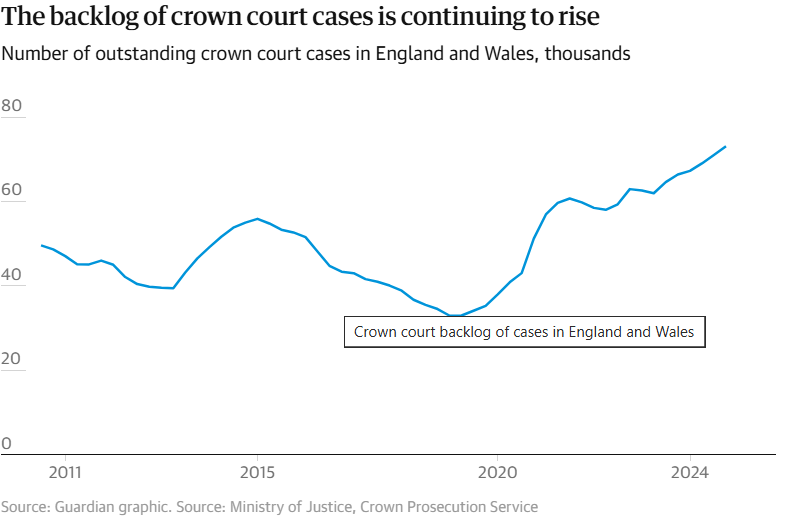Jury Trials to be Scrapped to Clear Court Backlogs: Is This Fair to the Defendant?

The cases which are likely to fall subject to the 'intermediate courts' are those that are deemed too serious for the Magistrates Court but deemed not serious enough for a Crown Court jury trial. This could include; low level indecent image cases, sexual assaults, domestic violence and sexual communication offences.
However, from a defence lawyers view, the implementation of such a process could lead to unfairness and could be disadvantageous to the accused, which could lead to more appeal applications being lodged, causing further backlogs for the Court of Appeal.
How Will Intermediate Courts Affect a Defendant?
The introduction of Crown Court hearings without a jury is for many going to be a frightening thought, and will take away the choice of being tried by a jury that defendants charged with either-way offences have.
Where a suspect is charged with an offence it will fall into one of three categories:
Summary Only
A summary only offence is a criminal offence that can be heard only by the Magistrates Court and is deemed a less serious offence.
Indictable Only
Indictable only offences can be heard only in the Crown Court, these offences are of the most serious and include Rape, murder, and assault by penetration.
and;
Either Way
An either-way offence can be heard by the Magistrates Court or the Crown Court. Where a Magistrates Court accepts an either-way offence the defendant then has the opportunity to elect the Crown Court should they wish to do so. The main reason a defendant would be advised to elect the Crown Court is to have a trial by jury, to be tried by 12 ordinary members of the public and this is a very attractive mode of trial for many.
A trial in the Crown Court provides the judge and the jury with two different functions, the judge oversees the law and the procedure, whereby the jury is the finder of the facts, their role is to hear the evidence and decide what they believe. If a trial is to be put before a judge and magistrates, are the Magistrates to take over the role of the jury, and if so, is this going to lead to a fair trial.
How Would Changes Work?
The review and proposals are in their very early stages and there will be no development of them until April 2025 at least. However, for the new system to be implemented and to work efficiently ensuring fairness to the accused, there are going to have to be changes throughout the whole system; including the reclassification of offences and clear guidance as to the function and powers of each role within the judiciary and also whether the appeal process would remain the same.
Whilst we would agree it is in the interests of those who are involved in the criminal justice system for reform, it does have the potential to cause more problems that it solves.
We Can Help With




